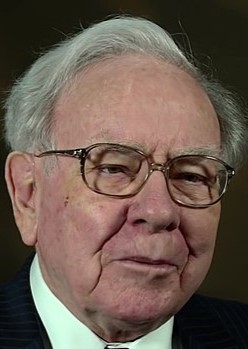Share repurchases: What is smart at one price is stupid at another
Discussions about share repurchases often become heated in the investment world. But, in the words of Berkshire Hathaway chairman Warren Buffett, assessing the desirability of repurchases isn’t that complicated.
“From the standpoint of exiting shareholders, repurchases are always a plus. Though the day-to-day impact of these purchases is usually minuscule, it’s always better for a seller to have an additional buyer in the market,” Warren Buffett said in Berkshire Hathaway’s 2016 annual report.
“For continuing shareholders, however, repurchases only make sense if the shares are bought at a price below intrinsic value. When that rule is followed, the remaining shares experience an immediate gain in intrinsic value. Consider a simple analogy: If there are three equal partners in a business worth $3,000 and one is bought out by the partnership for $900, each of the remaining partners realizes an immediate gain of $50. If the exiting partner is paid $1,100, however, the continuing partners each suffer a loss of $50. The same math applies with corporations and their shareholders. Ergo, the question of whether a repurchase action is value-enhancing or value-destroying for continuing shareholders is entirely purchase-price dependent.
“It is puzzling, therefore, that corporate repurchase announcements almost never refer to a price above which repurchases will be eschewed. That certainly wouldn’t be the case if a management was buying an outside business. There, price would always factor into a buy-or-pass decision.”
Too often, CEOs or boards seem oblivious to price when they are buying a small part of their own company. “Would they behave similarly if they were managing a private company with just a few owners and were evaluating the wisdom of buying out one of them?” Mr Buffett asked. “Of course not.”
The legendary investor said that it is important to remember that there are two occasions in which repurchases should not take place, even if the company’s shares are underpriced: (1) When a business both needs all its available money to protect or expand its own operations and is also uncomfortable adding further debt. Here, the internal need for funds should take priority. This exception assumes, of course, that the business has a decent future awaiting it after the needed expenditures are made; (2) The second exception, less common, materializes when a business acquisition (or some other investment opportunity) offers far greater value than do the undervalued shares of the potential repurchases.
Warren Buffett suggested that before even discussing repurchases, a CEO and the board should stand, join hands and in unison declare, “What is smart at one price is stupid at another.”
